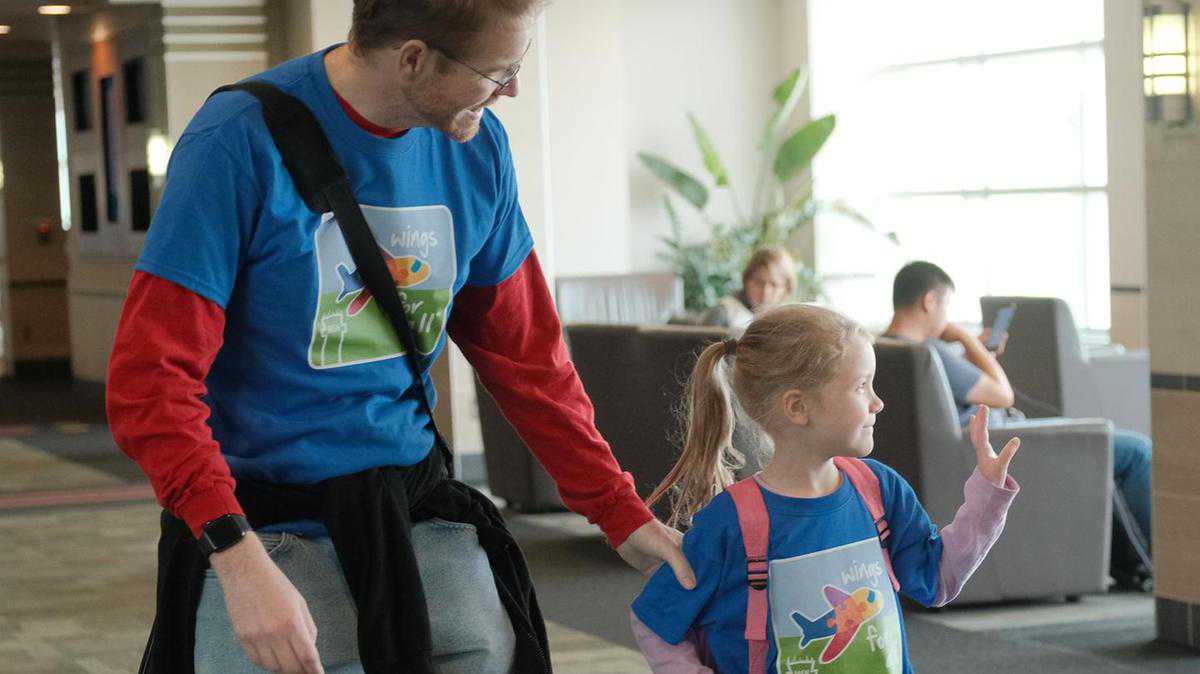Triple-fold increase in UAE travellers booking trips using little-known DPNA code

Image collected
Travellers with intellectual disabilities are more frequently requesting assistance thanks to an increase in awareness of a service code that alerts airline staff to their needs.
In the Middle East and Africa, there has been a 342 per cent increase in bookings made using the Special Service Request code, compared to the same period in 2018 according to Travelport – a leading travel commerce platform.
The DPNA (Disabled Passenger with Intellectual or Developmental Disability Needing Assistance) code was introduced by The International Air Transport Association over a decade ago.
It is designed to assist people with intellectual and developmental disabilities when travelling.
In 2018, Travelport registered more than 250 million flight bookings worldwide, but only 4,309 instances of the DPNA code being used. That equates to around 0.0015 per cent of total flight bookings. That statistic is at odds with the estimated 200 million people in the world living with intellectual disabilities.
The triple-fold increase in use of the code in travel bookings across the Middle East correlates to the launch of Travelport's "Travel Unified" campaign which kicked-off in March 2019.
The project was allied to the Special Olympics World Summer Games 2019 held in Abu Dhabi. Since the launch of Travel Unified, the DPNA code has been used for the first time in the UAE, Oman, Kuwait and Kuwait .
Local influence
Emirati personality Khalid Al Ameri has a son on the autism spectrum. The vlogger was vocal in his support for Travelport's Travel Unified campaign.
"Travel can be stressful for anyone let alone a child on the autism spectrum, and for Salama and I this has always been a concern for us and something we try to our best to prepare for," said Al Ameri on his Facebook page.
He created a video documenting a family trip from Abu Dhabi to Bahrain which he booked using the DPNA code on an Etihad flight.
In the video the family are directed to dedicated check-in counters, given early access to the airplane and assigned seats together with an empty seat reserved beside them for as long as possible.
The video has been viewed more than seven million times and Al Ameri said discovering that DPNA exists has "changed the way we travel".
No one-size fits all solution
Every traveller with intellectual or developmental disabilities has different needs so the code is not a one-size fits all solution.
It exists to alert staff to the fact that a passenger on board may require extra assistance. It also allows travel agents and airlines to record any specific needs a passenger may have.
Mark Meehan, Travelport’s global vice president and managing director of Asia Pacific, Middle East and Africa said: “We believe travel should be an exciting, stress-free and dignified experience for everyone, and are committed to doing what we can to help achieve this.”
It's up to airports and airlines to take this further. Several have already stepped up their game by introducing airport walk-throughs that allow travellers with autism to get to know the unfamiliar spaces and processes of flying before travel."
Hartsfield-Jackson Atlanta International Airport in the United States has a Multi-Sensory room designed to be a calming space for children with sensory sensitivities. A similar room exists at London's Gatwick Airport. At Ireland's Shannon Airport, children with intellectual disabilities can opt to wear orange baseball caps handed out at check-in which offers them increased assistance during their airport journey.
Source: https://www.thenational.ae
Previous Story
- Etihad travellers can book flights via EasyJet
- Overseas job drops by 10pc, remittance rises by...
- The Opus and Al Faya Lodge: two UAE...
- Bangladeshi expatriates mark Victory Day in UAE
- Bangladesh's future choice
- Training for expatriate workers begins in UAE
- PM seeks larger UAE investment in Bangladesh
- Oman visitors told to apply in advance for...